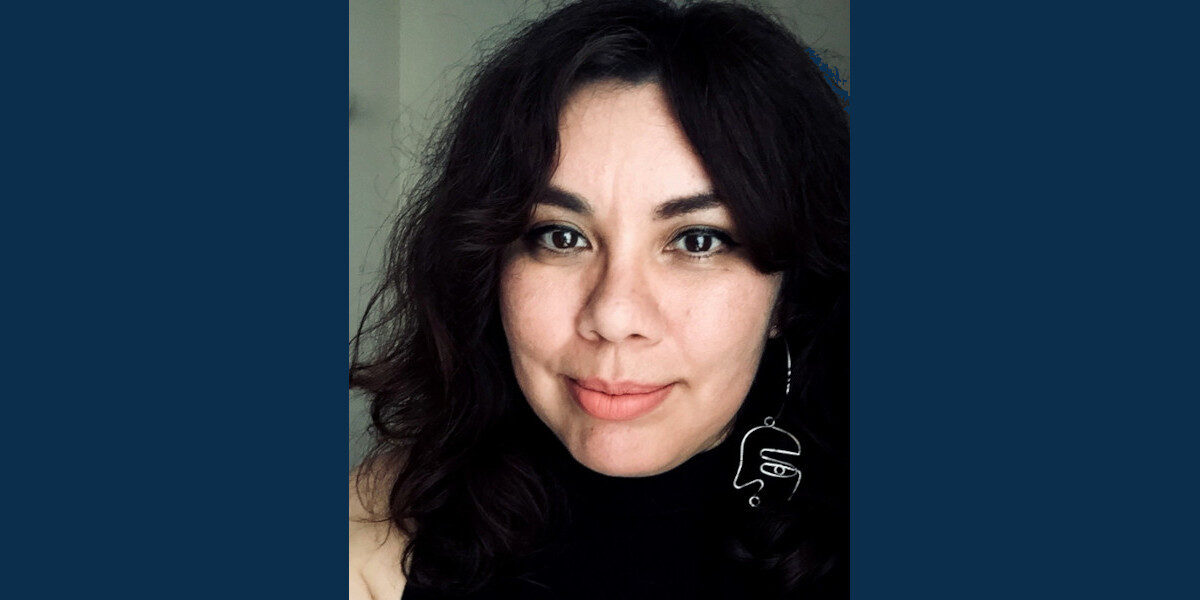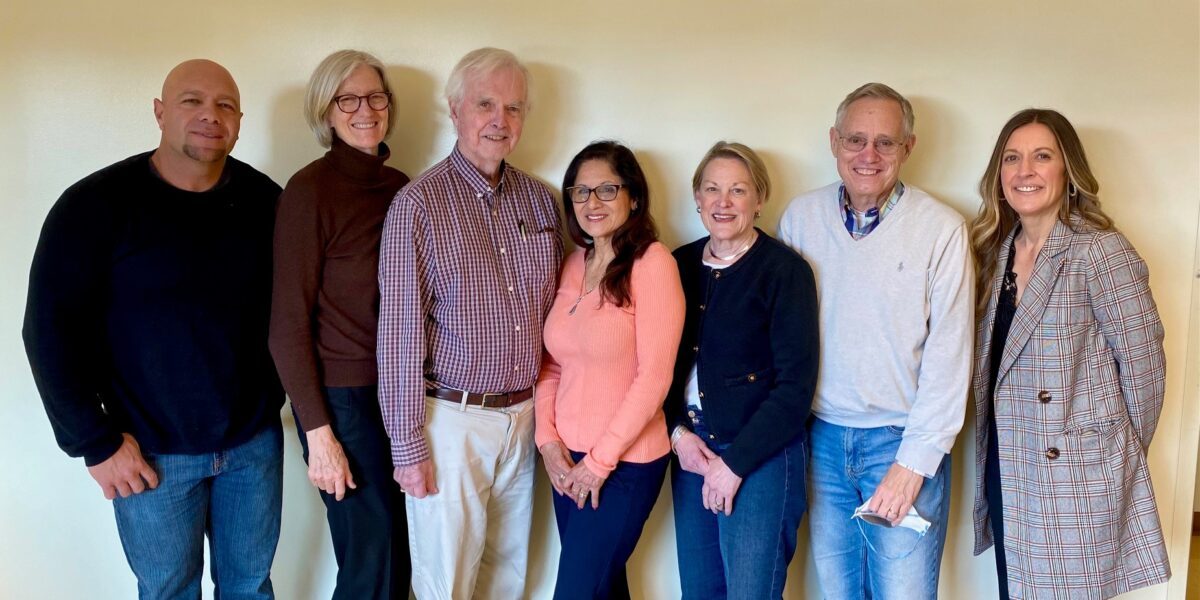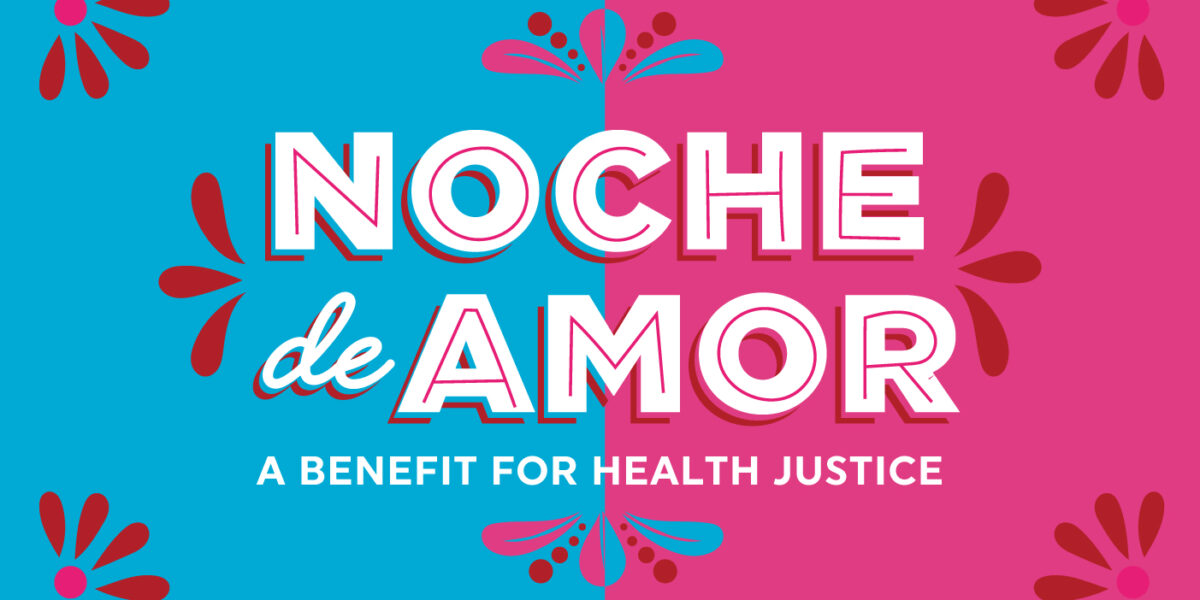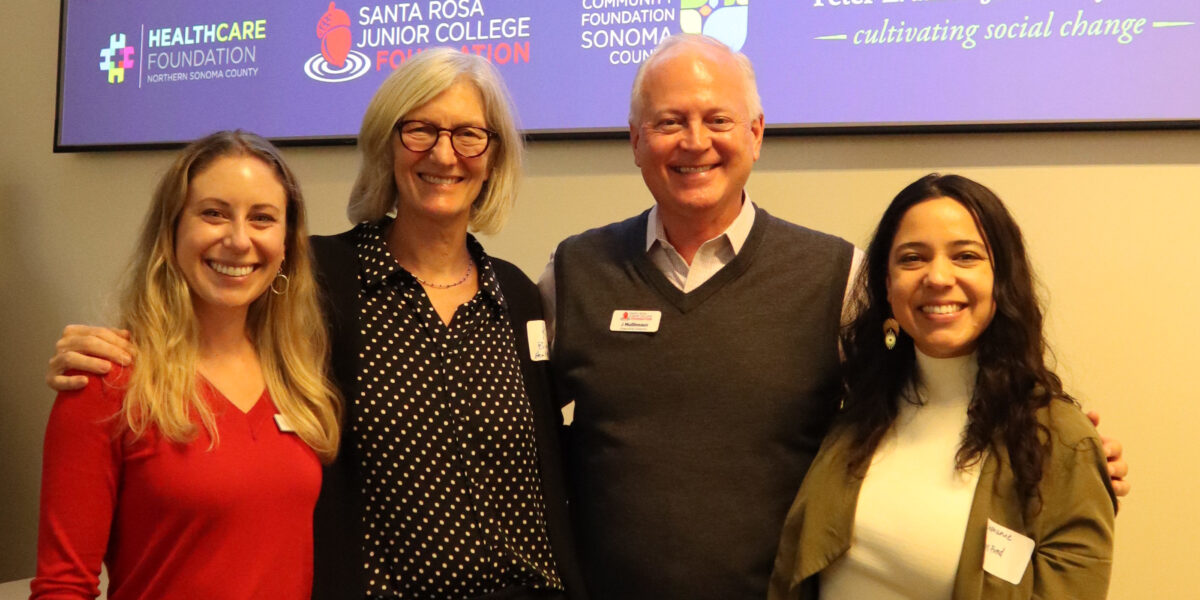

Meet Mental Health Talent Pipeline Scholarship Awardee Claudia Hernandez
Claudia Hernandez is a member of the first cohort of bilingual/bicultural graduate students and aspiring mental health professionals—and the first SSU student—in the Healthcare Foundation’s Mental Health Talent Pipeline scholarship program. Read more about her journey here.
Claudia Hernandez is a member of the first cohort of bilingual/bicultural graduate students and aspiring mental health professionals—and the first SSU student—in the Healthcare Foundation’s Mental Health Talent Pipeline scholarship program. She grew up in Los Angeles, the child of immigrants from Mexico, and although she relocated to Sonoma County to pursue her master’s in counseling psychology, it is in Los Angeles that her journey as a mental health professional properly begins.
Having served as a support to family members in a household challenged by patterns of dysfunction, Claudia was drawn to helping others early on. After college, she took a job as a case manager in Skid Row in downtown Los Angeles, an area of concentrated poverty with a large population of people experiencing homelessness. It was here that she found herself inspired by the mental health professionals among her colleagues.
“I worked at a place called SRO Housing Corporation,” she explained in a recent phone conversation, “whose mission was to house homeless individuals who had dual diagnoses, usually some kind of mental illness with any substance use issues. In that job I was exposed to all different kinds of people who had mental illnesses, and I was working with people in the mental health field like psychologists and social workers. That’s where the seed was planted.”
Her second job was also as a case manager, this time in Lennox, an unincorporated city near Inglewood, where she worked with youth ages 16 to 24 who had been pushed out of traditional high school. “A lot of our kids, I had noticed, were suffering through some kind of traumatic incident in their lives, abuse or poverty, all kinds of things that were impacting their mental health and therefore impacting their ability to function within this rigid school system,” she recalls.
“Our clinic gets a lot of Spanish-speaking individuals who want services and sometimes they have to be put on a longer wait list because there is a lack of Spanish-speaking clinicians. That’s a huge barrier to mental health services and mental health access.”
“Talking to the students, I realized I wanted to do more. I wanted to go into a field that could prepare me to really be able to work directly with people on their mental health issues. I started looking into graduate schools and I picked Sonoma State University. I got accepted, and here I am.”
Today, Claudia is a registered Associate Marriage and Family Therapist working at SOS Community Counseling in Cloverdale, having formerly done a traineeship in SOS’s now-closed clinic at Windsor High. She graduated from SSU in 2020, and now serves a broad clientele from across Sonoma County. “My caseload consists of minors, or anyone under the age of 18, all the way up to folks who are 69 years old,” she explains. “So it’s quite a range.” Sessions are mostly via tele-health video calls during the pandemic.
When asked about how the needs she addresses here compare to what she found working in Los Angeles, she points to an insight common to both populations.
“One of the baseline similarities that I’ve noticed is that a lot of people who use substances have some kind of trauma in their lives. That is something I’ve seen consistently across the board, both in L.A. and up here.”
As far as differences, she says she does see a relative lack of resources in Sonoma County, noting also “a lack of diverse counselors here. Our clinic gets a lot of Spanish-speaking individuals who want services and sometimes they have to be put on a longer wait list because there is a lack of Spanish-speaking clinicians. That’s a huge barrier to mental health services and mental health access.”
Adding to the challenge of delivering mental health services to the Spanish-speaking community is a still pervasive stigma around mental health.
“I’m first generation. Even with my own family, being a therapist is something that is shocking to them. It’s something that I see in our community, people don’t want to be seen as being quote-unquote crazy.” She adds that this perspective is shifting, “slowly but surely,” crediting better access to information and a younger generation that has been “such an initiator of disseminating information through social media and talking to their parents.”
“I grew up in the ‘hood. I grew up in the areas where a lot of my own clients come from. I saw the lack of resources in my community, and it felt like something that I wanted to bring up and help address. I’m hoping that can change.”
At the same time, Claudia points out there is more behind the stigma than merely a lack of information, especially among older generations who might hesitate to ask for help for fear of unforeseen consequences in other realms of the system. “A lot of times that fear is based in a larger reality,” acknowledges Claudia. “They worry whether, if they were to talk about certain things, that could get back to systems of oppression like ICE. There’s a deep fear and worry that saying something could potentially harm them or harm their family. It keeps people hidden away, essentially, just to avoid any spotlight on them, especially if their immigration status is precarious to their situation here.”
That leaves many people opting to live with whatever they’re suffering from, says Claudia, adding that “the immigrant population often has so many additional stressors in their lives, too, and traumas from coming over to this country.”
Overcoming these challenges to access and trust in mental health services will take time and work, but a huge step forward is the availability of mental health professionals who can understand and relate to the particular circumstances of the populations they serve. As a bilingual and bicultural mental health professional, Claudia is working to bridge the gap in access for northern Sonoma County’s diverse Latinx community.
“Going through a traumatic childhood myself helped inspire my wanting to get into this field,” she says. “I also grew up in the ’hood. I grew up in areas where a lot of my own clients come from. I saw the lack of resources in my community, and it felt like something that I wanted to bring up and help address. I’m hoping that can change.”

Related News + Stories
Invest in Our Community
Your support is vital to our collective vision of eliminating health inequities in northern Sonoma County.
Donate



